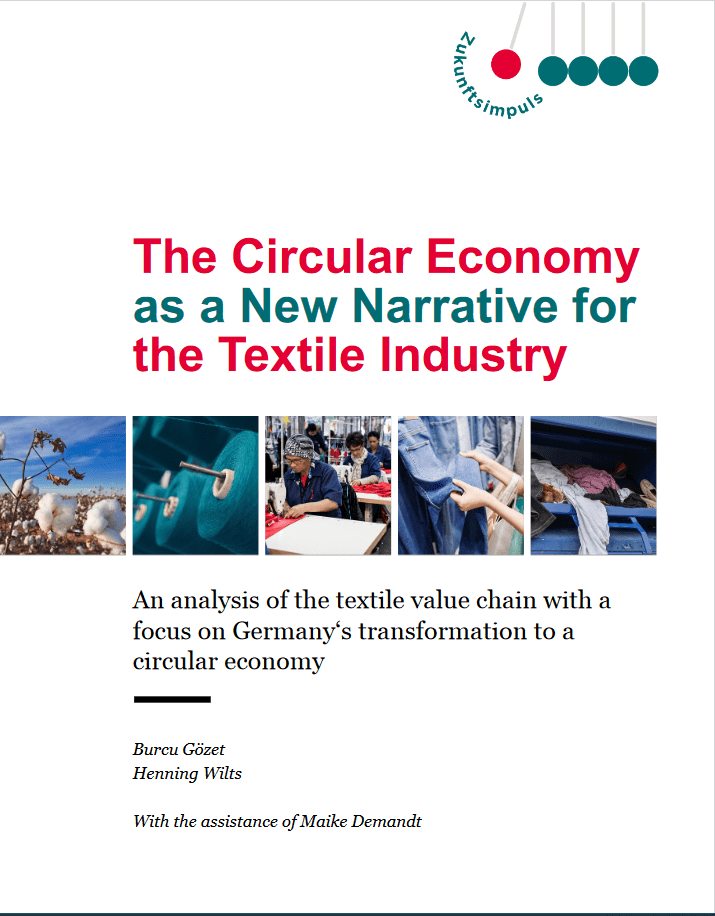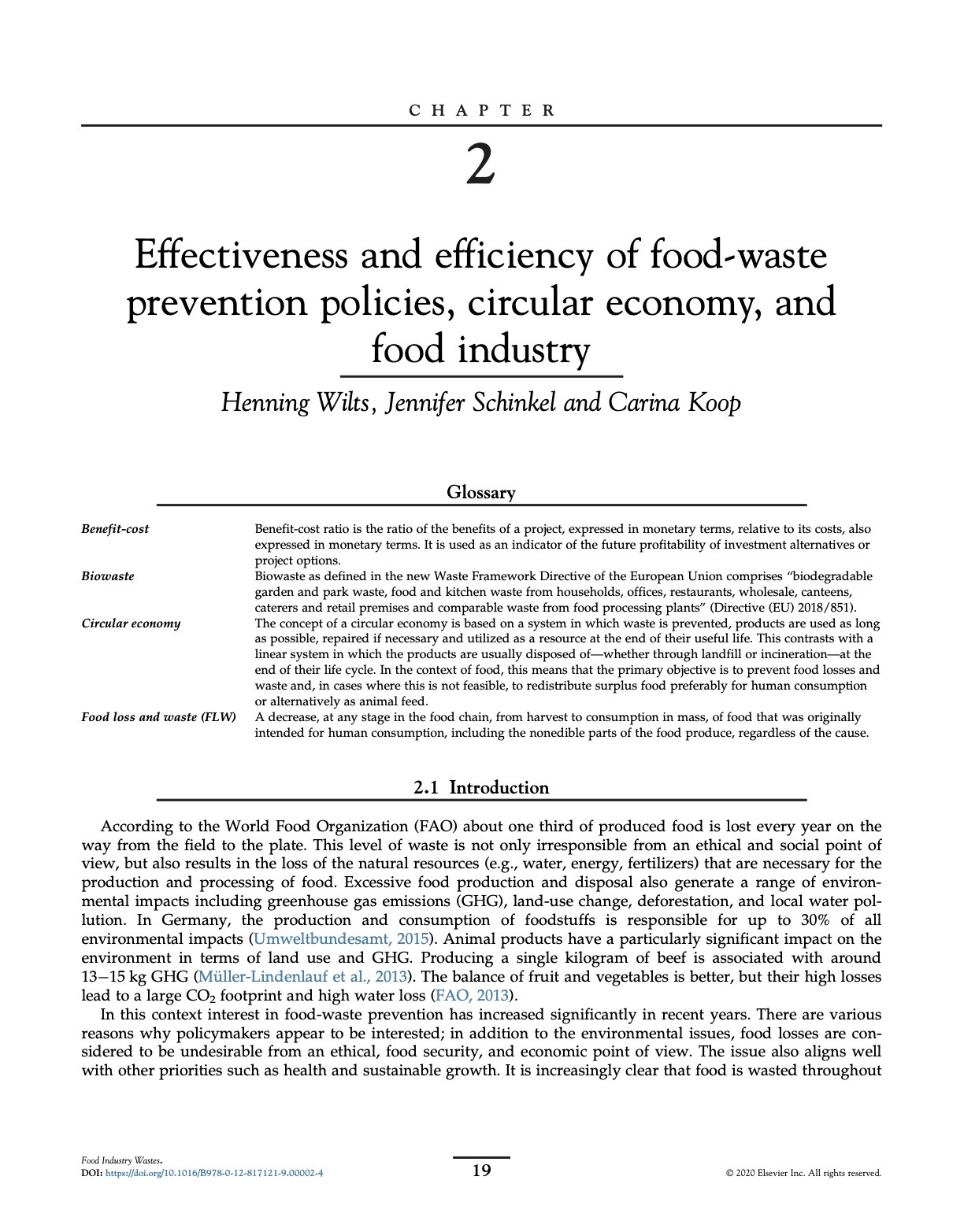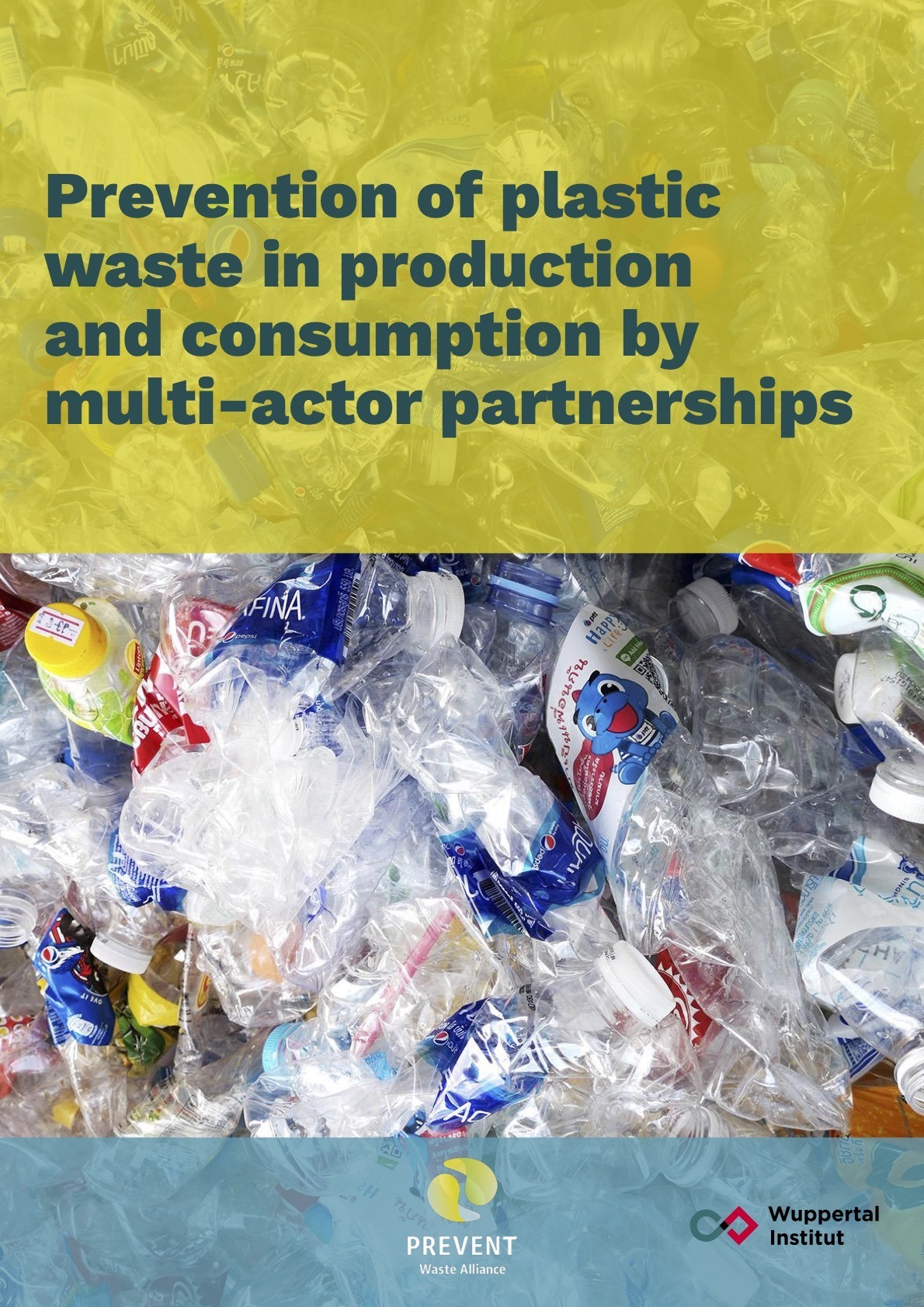︎

Henning Wilts
Wuppertal Institute
Henning Wilts is the Director of Division Circular Economy at the Wuppertal Institute. He studied economics with focus on European political science, economic policy, and fiscal law at the University of Cologne and holds a PhD from the Technical University of Darmstadt. His research focus is on transformative processes for a circular economy, economics of waste prevention, environmental assessment of waste prevention measures, and resource efficiency.
MORE ABOUT HENNING WILTS >2022
Burcu Gözet, Henning Wilts
The circular economy as a new narrative for the textile industry: an analysis of the textile value chain with a focus on Germany’s transformation to a circular economy
At the end of March 2022, the European Commission published its new EU Strategy for Sustainable and Circular Textiles. Its ambitious vision is to reduce textile waste, promote circular measures and minimise the negative environmental impacts of the textile industry. But what would a textile industry...

2020
Henning Wilts, Jennifer Schinkel, Carina Koop
Effectiveness and efficiency of food-waste prevention policies, circular economy, and food industry
According to the World Food Organization about one third of produced food is lost every year on the way from the field to the plate. This level of waste is not only irresponsible from an ethical and social point of view, but also represents a considerable loss of natural resources that are necessary...

2020
Wilts, H.; Schinkel, J.; Feder, L.
Prevention of plastic waste in production and consumption by multi-actor partnerships
The study sheds light on the background of the prevention of plastic waste from packaging and disposable products by explaining the need for action, the environmental impacts and risks to human health. Experiences of the members of the PREVENT Waste Alliance and their partners in the prevention of p...

2019
Wiebke Hagedorn, Henning Wilts
Who should waste less? Food waste prevention and rebound effects in the context of the Sustainable Development Goals
The issue of food waste prevention plays a role in global and national policies. Such prevention can reap economic and, in particular, environmental benefits. As our study shows, these environmental benefits are often lost due to indirect rebound effects. Income differences play a crucial role here....

